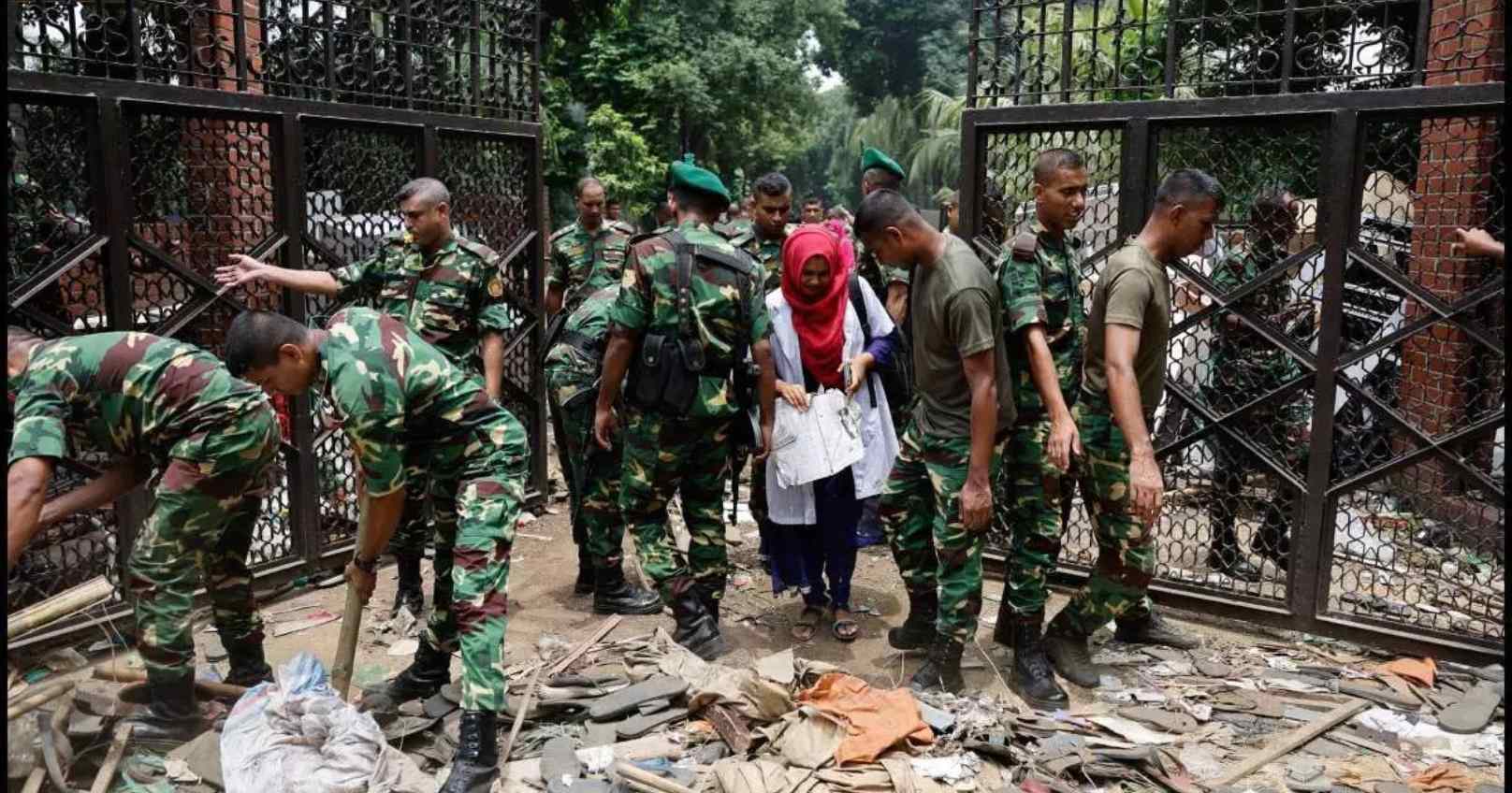The Bangladesh Army has arrested hundreds of Awami League supporters and workers in a sweeping crackdown ahead of the party's planned protest in Dhaka against the interim government led by Muhammad Yunus. The protest is scheduled for 3 pm on Sunday, though authorities have denied the Awami League permission to proceed.
In response, Dhaka has effectively been transformed into a high-security zone with 191 platoons of Border Guard Bangladesh (BGB) stationed throughout the capital and other strategic areas. Despite the ban, Awami League workers, supporters, and underground leaders are expected to gather in key locations, including Gulisthan, Zero Point, and Nur Hossain Square, to protest what they call the wrongful persecution of their leaders and the banning of their student wing, Chatra League.
Sheikh Hasina’s party has faced increasing pressure since she resigned and left Bangladesh on August 5 following violent protests supported by the Bangladesh Nationalist Party (BNP), Jamaat-e-Islami, and allied groups. In an apparent show of dominance, BNP and Jamaat have moved to block Awami League gatherings by stationing their members at potential protest sites, including areas around Gulistan and Awami League headquarters.
Citing the Awami League as a "fascist party," the Yunus administration reiterated its stance against permitting any demonstrations, pledging zero tolerance for activities that could incite violence. "The Awami League in its current form is a fascist party," said Shafiqul Alam, the press secretary for the interim administration. "There is no way this party will be allowed to protest in Bangladesh. The government will not tolerate any violence or attempts to disrupt law and order," he added, warning that anyone attempting to assemble will "face the full force of law enforcement."
The Awami League, however, maintains that their protest is a stand for the rights of Bangladeshi citizens and against the rise of fundamentalist forces. In a statement, the party urged people to support its cause, saying, "Our protest is against the deprivation of citizens' rights, against the growing influence of fundamentalist forces, and against the schemes that disrupt ordinary people's lives."
While calls to ban the Awami League have gained momentum, Prime Minister Yunus clarified that such a decision rests with the political parties, with some ministers in his government opposing the idea, emphasizing political inclusivity. The BNP has also voiced its opposition to banning any political party, stressing the importance of preserving democratic principles.







